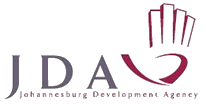In line with the medium term strategic framework and National Development, the budget prioritised infrastructure investment and social programmes, like health, education and community facilities. The local government infrastructure grant system would also be reviewed.
Nhlanhla NeneFinance Minister Nhlanhla Nene delivers his 2015 Budget Speech held in the National Assembly, Parliament in Cape Town. (Photo: DoC)Finance Minister Nhlanhla Nene had a fine balancing act on his hands when tabling his maiden budget in parliament on 25 February.
It was aimed at rebalancing fiscal policy to give greater impetus to investment, to support enterprise development, to promote agriculture and industry, and to make South Africa’s cities engines of growth. And all these needed to be done off the base of sluggish growth and spiralling national debt, coupled with severe electricity constraints.
In charting a course forward, Nene raised taxes to narrow the fiscal gap, while acknowledging the deteriorating economic outlook.
In line with the medium term strategic framework (MTSF) and the National Development Plan (NDP), the 2015 budget will continue to prioritise infrastructure investment and social programmes, such as health, education and community facilities, that support those citizens in need. These commitments were reflected in the budget allocations. A total public-sector infrastructure spend of R813.1-billion was projected over the next three years.
This speaks to the Johannesburg Development Agency, which has been appointed by the City’s directorate of health to manage its capital works programme in 2011/12, 2012/13 and 2013/14.
SHAPING URBAN DEVELOPMENT AND SUPPORTING CITIES
“The national government is working closely with metropolitan municipalities to invigorate urban development. As the NDP emphasises, realising the economic dividends of urban growth requires a new approach to providing infrastructure, housing and public transport services, while overcoming the spatial divisions of apartheid,” Nene said.
“This budget recognises the need to assist cities in mobilising the finance required for more rapid infrastructure investment and maintenance.”
Given the tight fiscal squeeze, Nene did not significantly increase infrastructure grants to cities over the medium term, but he said cities would be encouraged to use more of their own resources to expand and accelerate their investment programmes. This would help to accelerate growth and integrated development.
Working with the Cities Support Programme, Nene said that metropolitan municipalities had identified and sequenced investments to build more integrated cities. Projects being prepared or implemented included releasing strategically located land, upgrading bulk infrastructure, developing affordable housing, and public transport that would support the development of mixed-use precincts.
Such a project under way in Joburg is the Corridor of Freedom along Louis Botha Avenue. Investments of R531-million will expand the Rea Vaya Bus Rapid Transit system, and develop the Watt Street transport interchange and pedestrian infrastructure. Also in the area, inclusive social housing is being built, bulk infrastructure networks are being expanded and refurbished, and public spaces in the Patterson Park and Balfour Park precincts are being improved. In addition, Orchards and Thoko Ngoma clinics are being refurbished.
MOBILISING RESOURCES
“The National Treasury will introduce a new fiscal package to help large cities mobilise the resources necessary to implement strategic investment projects. All participating metros will be expected to make measurable commitments to good governance, and effective revenue and expenditure management,” the finance minister said.
The Treasury would continue to work closely with these municipalities to address specific obstacles to project implementation as they arose.
The infrastructure delivery management system used by national and provincial governments was also being expanded to cities to help them manage the implementation of these projects.
LOCAL GOVERNMENT INFRASTRUCTURE GRANTS
Nene said the Treasury was reviewing the local government infrastructure grant system, working together with the departments of Co-operative Governance; and Planning, Monitoring and Evaluation, as well as the South African Local Government Association and the Financial and Fiscal Commission. The first phase of the review, completed in 2014, identified two necessary reforms that would be made in 2015/16:
The rules in the municipal infrastructure grant will be amended to allow funds to be used to refurbish and replace infrastructure, but only if municipalities demonstrate that assets have been maintained on a regular basis.
The number of conditional grants will be reduced to ease the burden of grant reporting. Two public transport grants will merge in 2015/16 into a single public transport network grant. The number of water and sanitation grants is also likely to be reduced from 2016/17.
PHAKISA LABORATORIES
Support would also be given to the implementation of the NDP through in-depth, results-driven processes, known as phakisa laboratories, Nene said.
The first of these laboratories focused on the ocean’s economy, including off-shore oil and gas exploration and aquaculture opportunities. Already this had led to investment of R9.6-billion in Saldanha Bay, in the Western Cape.
Strategies for improving primary health clinics have also been developed through a phakisa process. The mining sector will be next. These processes draw widely on the talents and expertise of South Africans, from the public and private sectors, and the scientific and research community.
Joburg’s central role in the country’s mining industry is expected to be put to good use on this phakisa laboratory.

